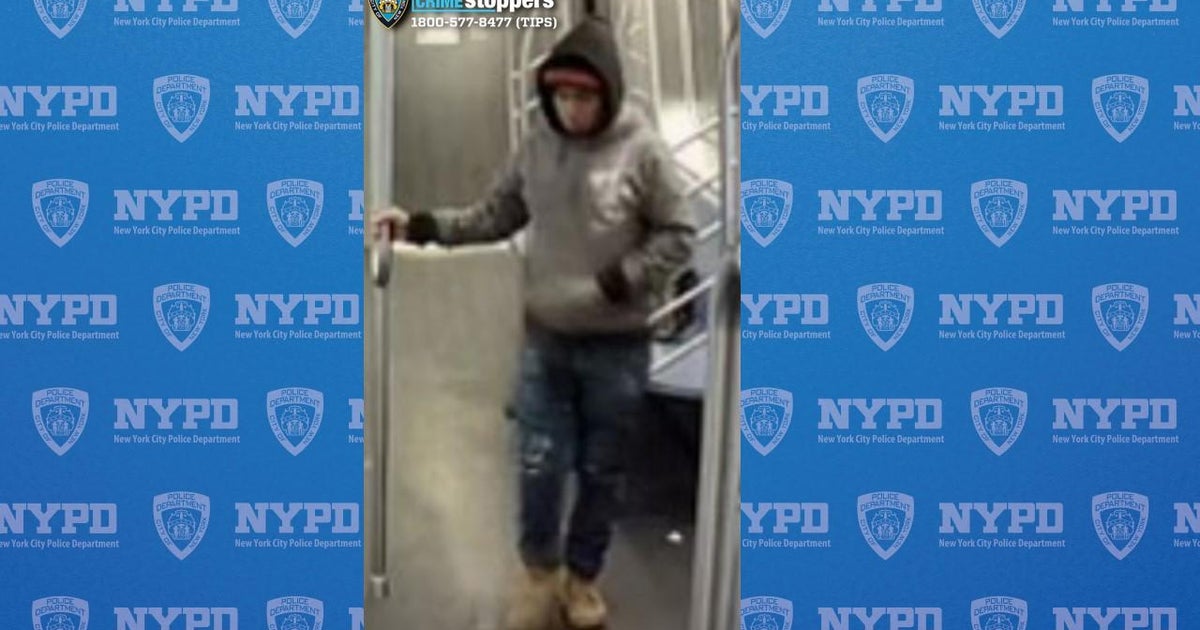Black History Month: Grandson Of Arturo Schomburg Says Legendary Collector Would Be Amazed By Schomburg Center, But 'The Work Is Not Finished'
NEW YORK (CBSNewYork) -- For many, the Schomburg Center represents the heartbeat of Black history and culture in New York City.
Arturo Schomburg helped preserve artifacts that would have been lost to generations.
Old film shows Schomburg inside his namesake center at the New York Public Library, surrounded by the stacks of books and relics he amassed over the course of his lifetime. He was the resident expert and curator of his life's work, made available to the public in 1925.
"How significant do you think Arturo's contributions were to the archives of Black history as a whole?" CBS2's Jessica Moore asked Joy Bivins, the center's director.
"There kind of aren't any words to really express how significant his contributions were because he's doing this at a time at the turn of the 20th century into the early part of the 20th century when Black people's humanity is still being questioned," Bivins said. "And he did it, you know, not part of a university, not because someone asked him to. He did it because he really had fervor and passion."
Schomburg grew up in Puerto Rico and moved to the United States at 17, always on the hunt for African-American artifacts.
He compiled a personal collection of 10,000 items related to Black history and the African diaspora and became the unofficial librarian for the Harlem Renaissance.
"If a friend of his was doing work in D.C., he would say, you need to go to this bookstore and look on this shelf because there are these great things there. Can you secure that for me?" Bivins said. "He was really amassing the bedrock of what would become Black studies."
Schomburg died about a decade after the center opened, but his legacy lives on.
"I was born January of 1939. Arturo died in June of 1938, so I like to think that he knew I was coming," said Schomburg's grandson, Dean Schomburg.
Though he never met his grandfather, Schomburg says Arturo's fingerprints are all over his life.
"People talk about a role model. Although I never knew him and we never talked, he was a role model for me because that's how I fashioned my life," he said.
The younger Schomburg majored in African and African-American studies at Fordham, spent years as a radio news anchor and contributes to the center, always drawing on lessons from the family patriarch.
"Black history has to be taught. People of color have to be made to be proud of who they are, what they've been through and how they've come through it all," Schomburg said. "He, by himself, was self-taught and had a kind of religiosity about what he did. He wasn't lettered, didn't have a degree ... I felt he felt that, 'maybe I'm not worthy, but I'm going to keep on keeping on because that's who I am.'"
Dean Schomburg says his grandfather was committed to his work above all else, but wasn't selfish with his collection, which filled every corner of his home, even the bathrooms.
"People would come to the house, even if they had to use the restroom for a minute, there were books all over the place. You'd have to step over books to go take a pee," he said. "[My aunt] would say, people would come borrow your books and never return them. Why do you let that happen? He said listen, they're only stealing knowledge, which what I want them to have."
"What do you think your grandfather would think if he walked in here today?" Moore said.
"He would be amazed. He would say, 'Well, I didn't think you guys would be able to do all this,' but he would say that the work is not finished," Schomburg said.
"Do you think your grandfather would be proud of you and everything you've done to contribute?" Moore asked.
"Oh, I think so. I hope so. That's what I'm living for," Schomburg said.
A commitment to carry on his family legacy so that everyone knows, Black history is American history.
The Schomburg Center is open Tuesday through Saturday and often features special pop-up events showcasing every aspect of Black history and culture.



